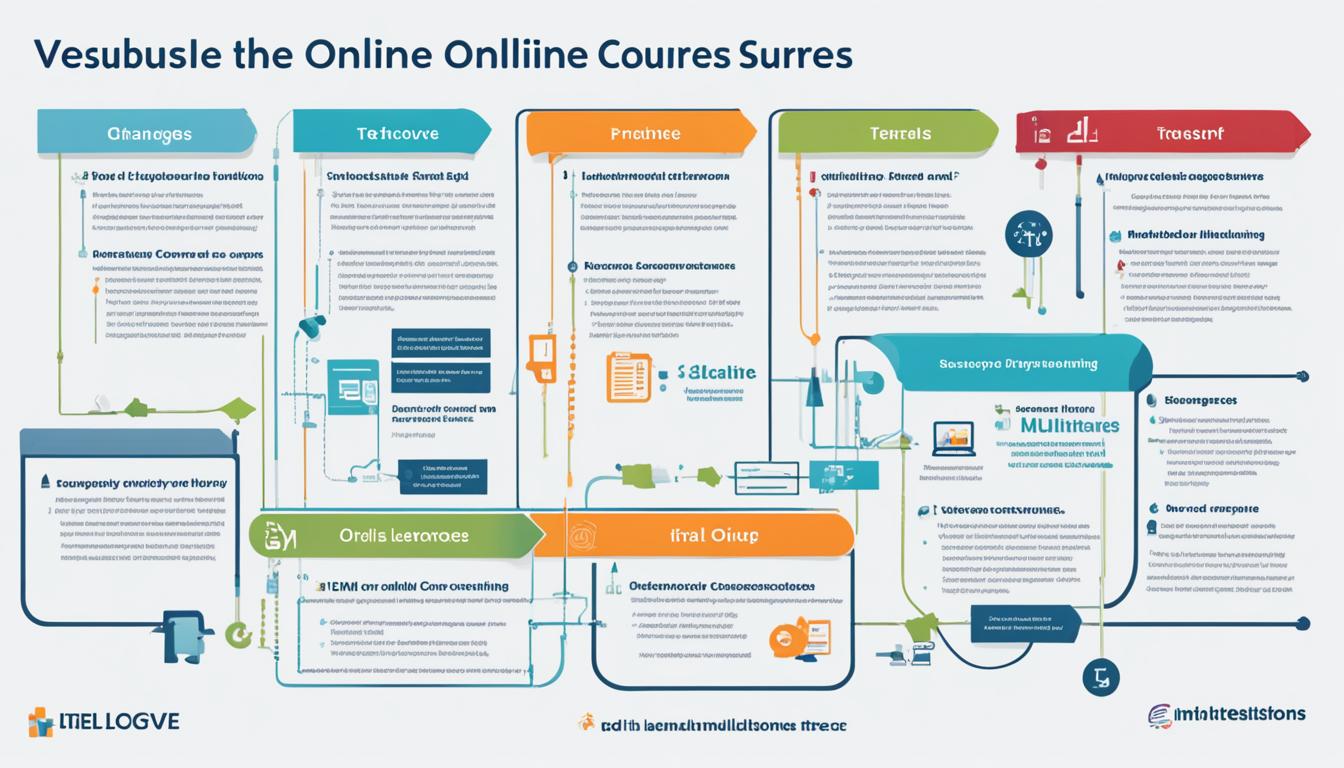Welcome to our in-depth exploration of the history of online courses and their evolution over time. In this article, we will take a fascinating journey into the origins of online learning, trace the advancements in technology that paved the way for digital education, and examine the transformative impact online courses have had on the educational landscape.
Online learning, also known as e-learning or digital education, has revolutionized the way we acquire knowledge and skills. It has opened up new possibilities for individuals from all walks of life to pursue education and career development at their own pace and convenience.
By understanding the history of online courses and the developments that have shaped it, we gain valuable insights into the present state of online learning and the immense potential it holds for the future.
Join us as we dive deep into the rise of online courses, the technological advancements that have propelled their growth, and the transformative impact they have had on accessibility, flexibility, and global reach in education.
The Emergence of Online Learning
In the early days of online learning, pioneers laid the foundation for the development of online courses. This marked the rise of distance education and the establishment of virtual classrooms, revolutionizing the way we approach education.
Distance education, also known as remote learning, paved the way for the accessibility and flexibility that online courses offer today. Students could learn from the comfort of their own homes, eliminating the need for physical attendance in traditional classrooms. This shift provided new opportunities for individuals looking to further their education while balancing work, family, or other commitments.
One of the key advancements during this time was the creation of virtual classrooms. These digital learning spaces simulated the traditional classroom environment, bringing students and teachers together regardless of geographical barriers. Through the use of video conferencing and collaboration tools, educators could interact with their students in real-time, fostering engagement and interactive learning experiences.
However, venturing into the digital realm of teaching posed initial challenges for educators. Adapting to new technologies and developing effective online teaching methods required a paradigm shift in traditional pedagogical approaches. Teachers had to learn how to effectively engage students remotely, manage virtual classrooms, and leverage multimedia resources to enhance the learning experience.
Despite the challenges, early adopters of online learning recognized the potential of this transformative educational approach. They understood that the rise of online courses and virtual classrooms had the power to democratize education, opening the doors to learning for individuals who may have otherwise been unable to access traditional educational institutions.
Technological Advancements and Expansion
In this section, we will explore the technological advancements that have revolutionized the world of online education. These developments have played a vital role in transforming online courses into a mainstream form of learning.
One significant advancement is the emergence of e-learning platforms. These platforms act as virtual classrooms, providing learners with a centralized space to access course materials, interact with instructors, and collaborate with fellow students. E-learning platforms have become the cornerstone of online education, offering a seamless and intuitive learning experience.
Furthermore, the development of robust Learning Management Systems (LMS) propelled the growth of online courses. LMS platforms provide educators with the necessary tools and resources to deliver engaging and interactive online learning experiences. With features like content management, assessment tools, and monitoring capabilities, LMSs have transformed the way courses are designed, delivered, and managed.
One notable trend in online education is the proliferation of Massive Open Online Courses (MOOCs). MOOCs offer learners the opportunity to access a vast range of courses from renowned universities and institutions, often free of charge. These courses are designed to accommodate a large number of learners simultaneously, allowing for flexible and self-paced learning.
While the technological advancements in e-learning platforms, LMSs, and MOOCs have revolutionized online education, it is important to acknowledge their limitations. Technical issues, lack of personal interaction, and the need for self-discipline are some challenges that learners may encounter in the online learning environment. However, the benefits of accessibility, flexibility, and global reach offered by these technologies outweigh these limitations.
The Transformative Impact of Online Courses
Online courses have revolutionized education, offering increased accessibility, flexibility, and global reach. The advent of online learning has broken down barriers, enabling individuals from diverse backgrounds to pursue their educational goals conveniently and at their own pace.
One of the key advantages of online courses is their accessibility. Unlike traditional brick-and-mortar institutions, online learning allows students to overcome geographical limitations. Individuals living in remote areas or with physical disabilities now have the opportunity to access quality education. With just an internet connection, learners can enroll in courses offered by prestigious universities and institutions around the world.
Furthermore, online courses offer unparalleled flexibility. Learners can tailor their learning experience to fit their schedules, enabling them to balance work, personal commitments, and education. Whether it’s a full-time professional looking to upskill or a stay-at-home parent seeking personal development, online courses provide the flexibility needed to accommodate diverse lifestyles and responsibilities.
The global reach of online courses has also transformed the educational landscape. Through online learning platforms, students can connect with instructors and peers from different countries, fostering cultural exchange and broadening their perspectives. This global reach has not only expanded educational opportunities for individuals but has also facilitated cross-cultural collaboration and the sharing of knowledge on a global scale.






